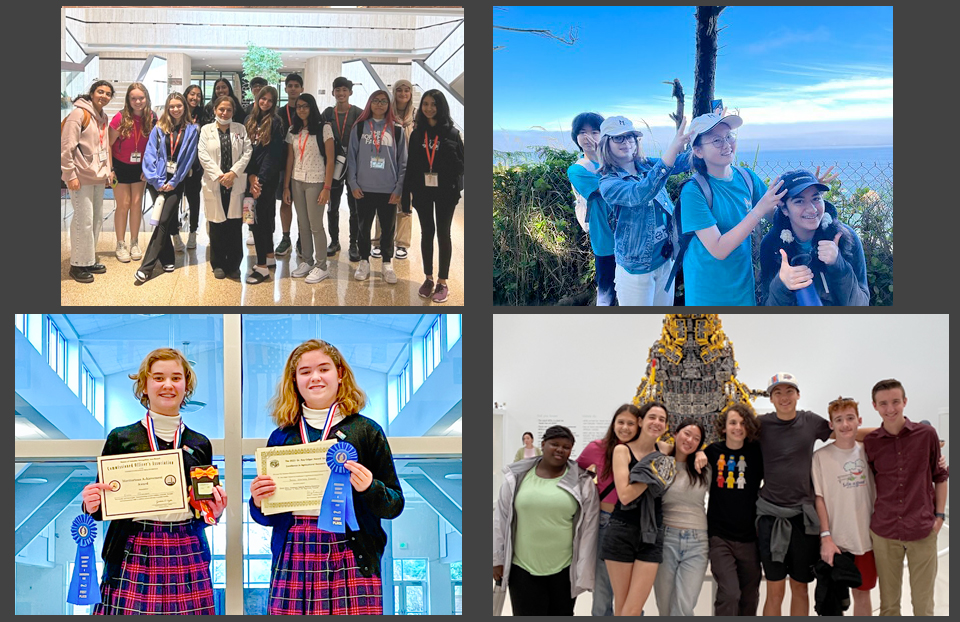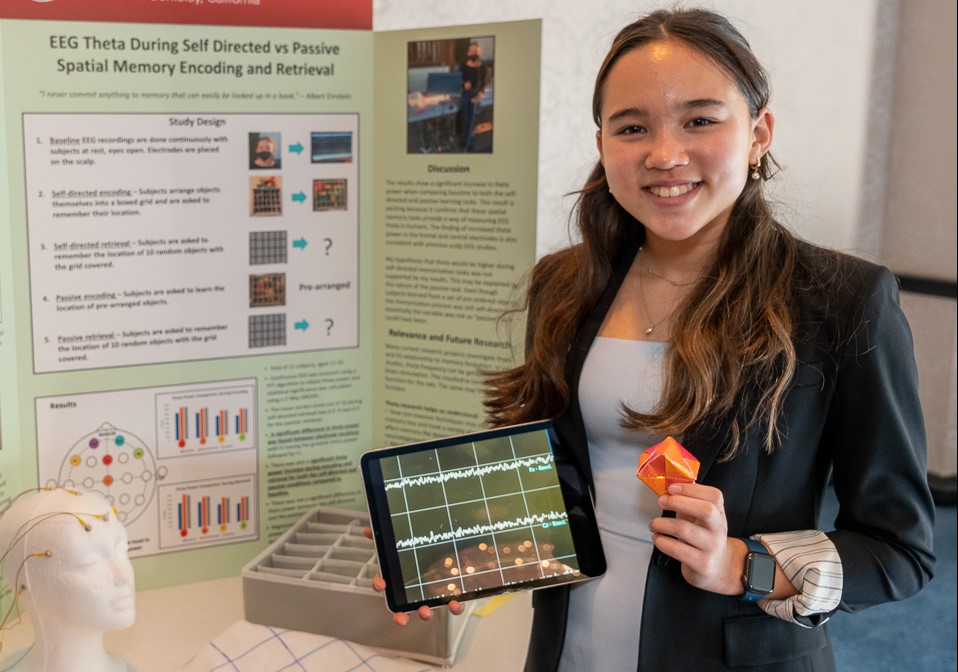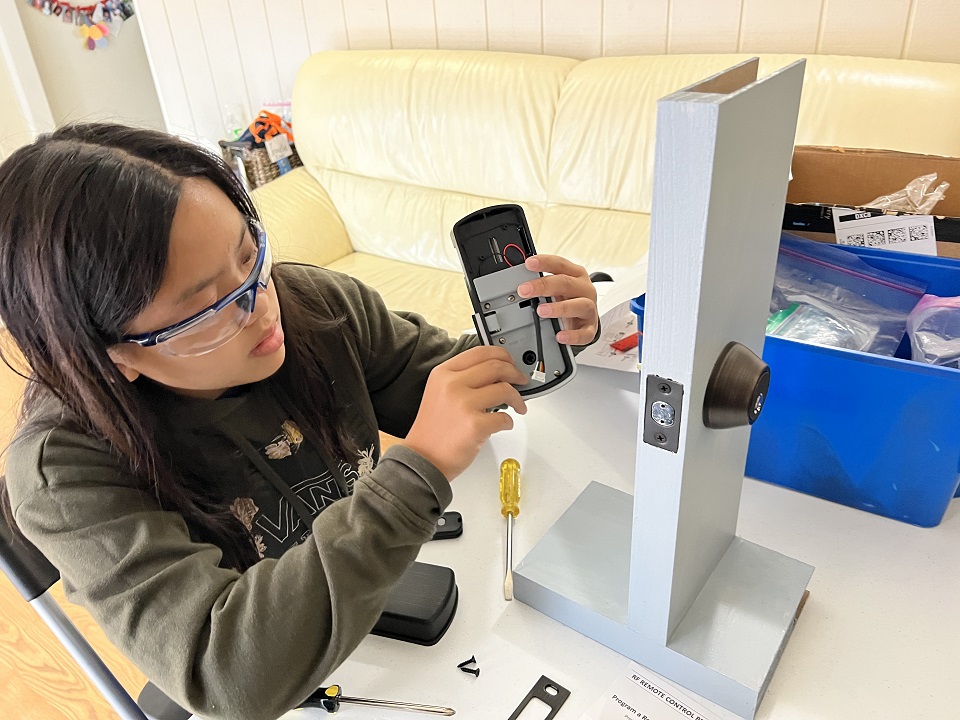Here’s your chance to virtually meet the top 30 middle school scientists in the country
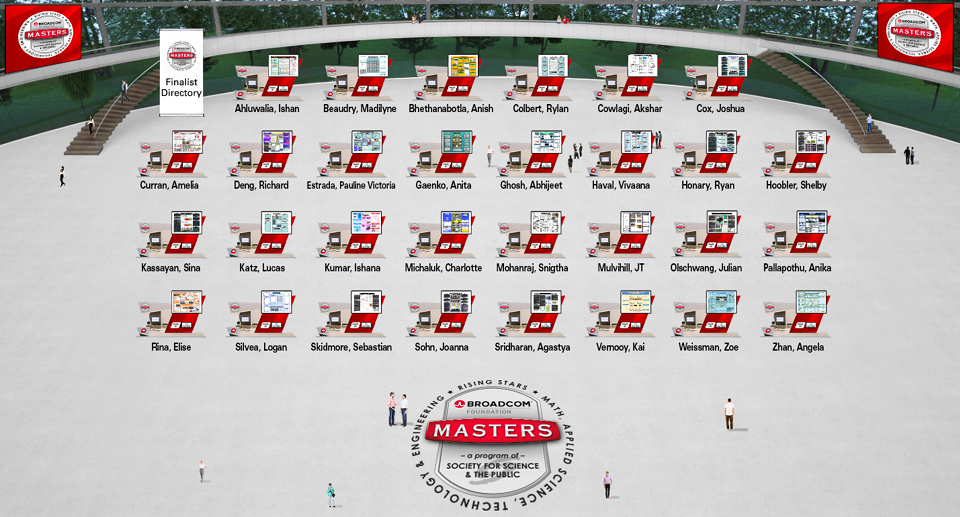
While the Broadcom MASTERS 2020 finalists will be competing virtually this year, members of the public will still have an opportunity to meet the students. The Broadcom MASTERS Science and Engineering Project Showcase will open on October 20 at 10 a.m. EDT. Finalists will be at their booths through a live chat to respond to questions from 2-4 p.m. EDT. The Society will also be providing educational materials that are designed to support virtual field trips for students of all ages. In addition, visitors will have access to the STEM Experiential Hall, where they will find numerous interactive and immersive STEM experiences. Learn more about a few of the Broadcom MASTERS 2020 finalists’ projects below.
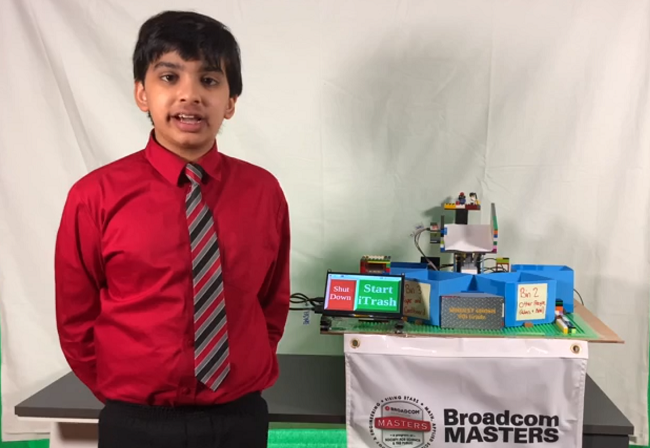
Abhijeet Ghosh, 11, from Marietta, Georgia, knows recycling is important for our planet, so he focused his science fair project on a convenient way to sort trash in order to reduce the instances where recyclables are contaminated by regular waste. To do so, he wrote a computer program to work in tandem with Google’s TensorFlow image classification model. After training the model with hundreds of pictures of waste items, Abhijeet taught it to recognize six different categories of waste. He then combined his artificial intelligence (AI) model with a robot built from LEGO Mindstorms pieces. The robot was equipped with a camera, sensors and a Raspberry Pi. “When I got started with research on AI for this project, I had a hard time grasping how machine learning, deep learning and convoluted neural network models can be built and trained,” he said. “To solve this, I began by learning linear regression and prediction, which uses the same mathematics as neural networks. This helped me to understand the complex mathematics of neural networks.”
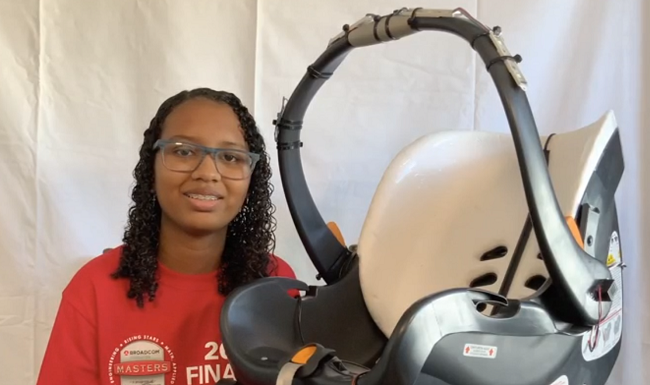
Elise Rina, 14, from Orlando, Florida, is concerned about the number of cases where parents accidentally lock their young children in hot cars, so she redesigned an infant car seat. “Florida ranks high in the nation for hot car deaths. I chose my project because I believe that many of these deaths can be prevented through technology,” she noted. Elise added temperature and pressure sensors, so that if heat inside the car hit a preset level and a child is strapped in the seat, an alarm would go off—buzzers would sound and lights would flash. Elise’s system also connects to the car motor that controls window functions. So, when the alarm is triggered, the car window will lower, letting in air and allowing for someone outside the car to rescue the trapped child.
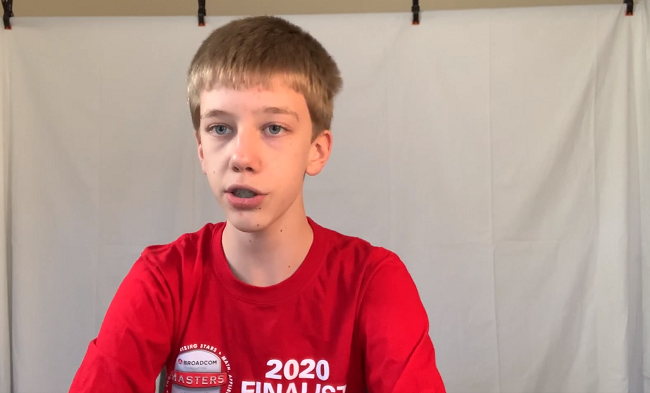
Kai Vernooy, 14, from Niskayuna, New York, worked on a project to help identify and fix gerrymandering. “I chose this topic because of the lack of current solutions, and because of the magnitude of the problem,” he explained. He and his teammates worked with different math tools and census data to come up with a program capable of analyzing voting maps and flagging extreme cases of gerrymandering. They wrote algorithms to draw optimal precincts, minimize partisanship in each area and rate the actual voting district. So far, the group has used the program they devised to examine voting maps for 26 states. Kai hopes to continue his research and analyze all 50 states after results of the 2020 U.S. Census are reported. “COVID-19 has made me realize what a huge issue political polarization in the U.S. is,” he reflected. “My project is important due to its potential to increase the quality of our democratic system.”
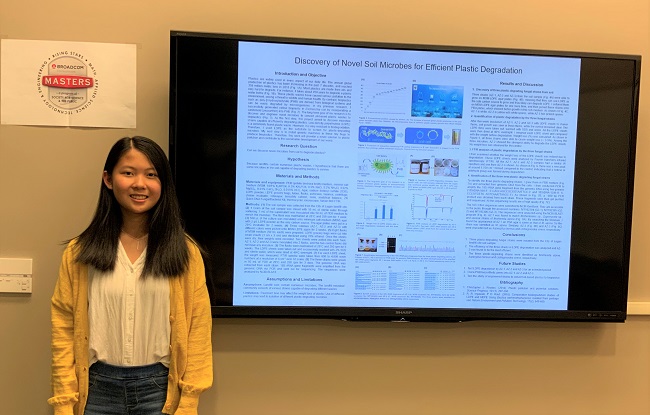
Angela Zhan, 13, from Logan, Utah, looked into microbial strains capable of effectively degrading plastics. She collected soil samples from a landfill site in northern Utah and then grew microbes from her samples in a potato dextrose broth. Gene sequencing helped her confirm three types of fungus that were breaking down the plastic into smaller chemical units. “The long-term goal of my research is to discover and engineer novel microbes to convert oil-based plastic wastes to bioplastics,” Angela says. “I have been interested in developing new technologies to build or repair the earth for a sustainable living environment, but never looked at invisible creatures such as viruses. The COVID-19 pandemic reminded me that they are a part of nature and we should learn how to live with them.” In the future, Angela might explore incorporating antiviral substances into plastics.
We hope to see you at the Broadcom MASTERS Science and Engineering Project Showcase! You can also visit the same virtual platform to watch the Winners Award Ceremony on October 21 at 7pm EDT and see who brings home the $25,000 Samueli Foundation Prize. Register here.
